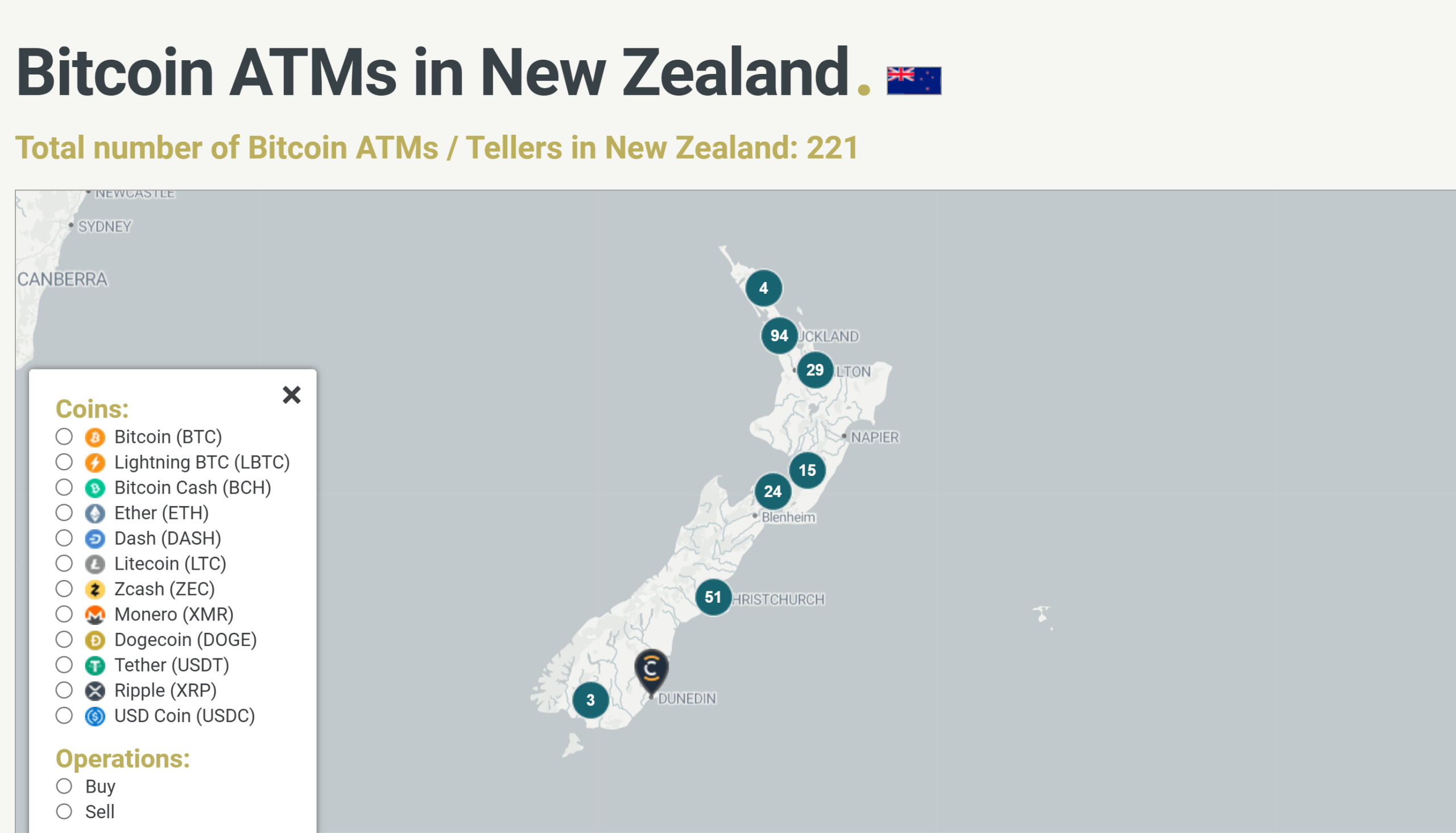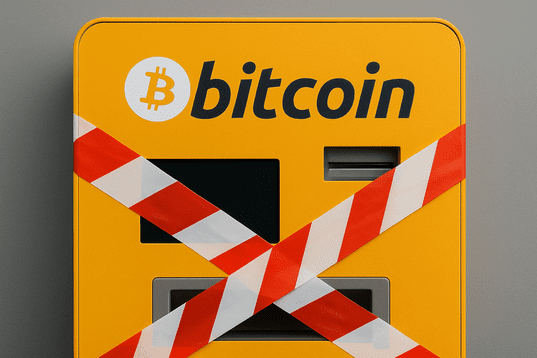New Zealand has implemented a nationwide crypto ATM ban as part of its wider plan to stop money laundering and financial crime.
The announcement came on July 9 from Associate Justice Minister Nicole McKee, who introduced major changes to the Anti-Money Laundering and Countering the Financing of Terrorism (AML/CFT) rules.
The new measures ban all cryptocurrency kiosks across the country. Officials said criminals have used these machines to quickly convert physical cash into digital currencies, helping them move funds out of the country. According to McKee:
“We will also make it more difficult for criminals to convert cash to high-risk assets such as cryptocurrencies by banning crypto ATMs.”
The New Zealand crypto ATM ban follows findings in an April report by the Ministerial Advisory Group on Transnational, Serious and Organised Crime.
The report said criminal groups often used crypto kiosks for drug transactions and fraud-related transfers.
Data from Coin ATM Radar showed that over 220 crypto ATMs operated in the country before the ban.
$5,000 Cash Transfer Limit Set to Block Large Illicit Movements
In addition to the crypto ATM ban, the government introduced a $5,000 cash transfer limit on international transactions. The cap is part of the same reform package aimed at closing gaps in financial oversight.
Authorities said the $5,000 cash transfer limit will make it harder for individuals to move large amounts of untraceable money overseas.
Officials included this measure in two New Zealand AML reform bills now under discussion in Parliament. These bills are expected to pass by the end of 2025.
“This Government is serious about targeting criminals, not tying up legitimate businesses in unnecessary red tape,” McKee stated during the announcement.
While easing certain compliance burdens for businesses, the government clarified that it is not lowering regulatory standards. Instead, it aims to apply them with a focus on high-risk activity.
FIU Powers New Zealand to Expand Financial Monitoring
The reforms also expand the authority of the Financial Intelligence Unit (FIU), giving it more control over how suspicious financial activity is tracked in the country.
Under the changes, the FIU powers New Zealand now include the ability to request ongoing data from banks and reporting agencies on flagged individuals.
Previously, financial institutions only had to file reports when a suspicious transaction occurred. Now, they must continue providing updates about the same account or person.
The extended monitoring powers are intended to help law enforcement trace how illicit money moves through local and international channels.
Officials said the changes will help bring New Zealand in line with global anti-money laundering practices.
Global Crypto ATM Regulation Spreads Beyond New Zealand
The New Zealand crypto ATM ban follows similar enforcement actions in other countries. Regulatory agencies have increased pressure on these kiosks due to rising scam and fraud reports.
In June 2025, Australia’s financial intelligence agency AUSTRAC introduced tighter rules.
These included a 5,000 AUD ($3,250 USD) limit on deposits and withdrawals, identity checks, and mandatory reporting for crypto ATM operators.
In the United States, the city of Spokane, Washington, banned crypto ATMs entirely. The city council ordered the removal of all machines, citing their use in fraud cases targeting vulnerable communities, especially in lower-income neighborhoods.
The global push for crypto kiosk crackdown measures reflects growing concerns that these machines allow criminals to bypass financial monitoring tools used by banks and institutions.
April Report Warned of Crypto Kiosk Abuse in New Zealand
The decision to ban crypto ATMs in New Zealand was heavily influenced by an April 2025 report from the Ministerial Advisory Group on Transnational, Serious and Organised Crime.
The report found that criminals used these machines to send money abroad in a way that avoided standard checks.

Officials highlighted that many kiosks lacked proper user identification procedures. The report said this made it difficult to track who was converting large amounts of cash into cryptocurrency.
The advisory group recommended urgent measures, including shutting down crypto ATMs and tightening rules around cash-based international transfers.
The government responded by incorporating both points into its New Zealand AML reform strategy.
McKee confirmed that the country would continue to apply compliance tools “intelligently” and focus on areas with the highest risk.
“This is not about dropping standards, it’s about applying them intelligently,” she said.
Disclosure:This article does not contain investment advice or recommendations. Every investment and trading move involves risk, and readers should conduct their own research when making a decision.
Kriptoworld.com accepts no liability for any errors in the articles or for any financial loss resulting from incorrect information.


